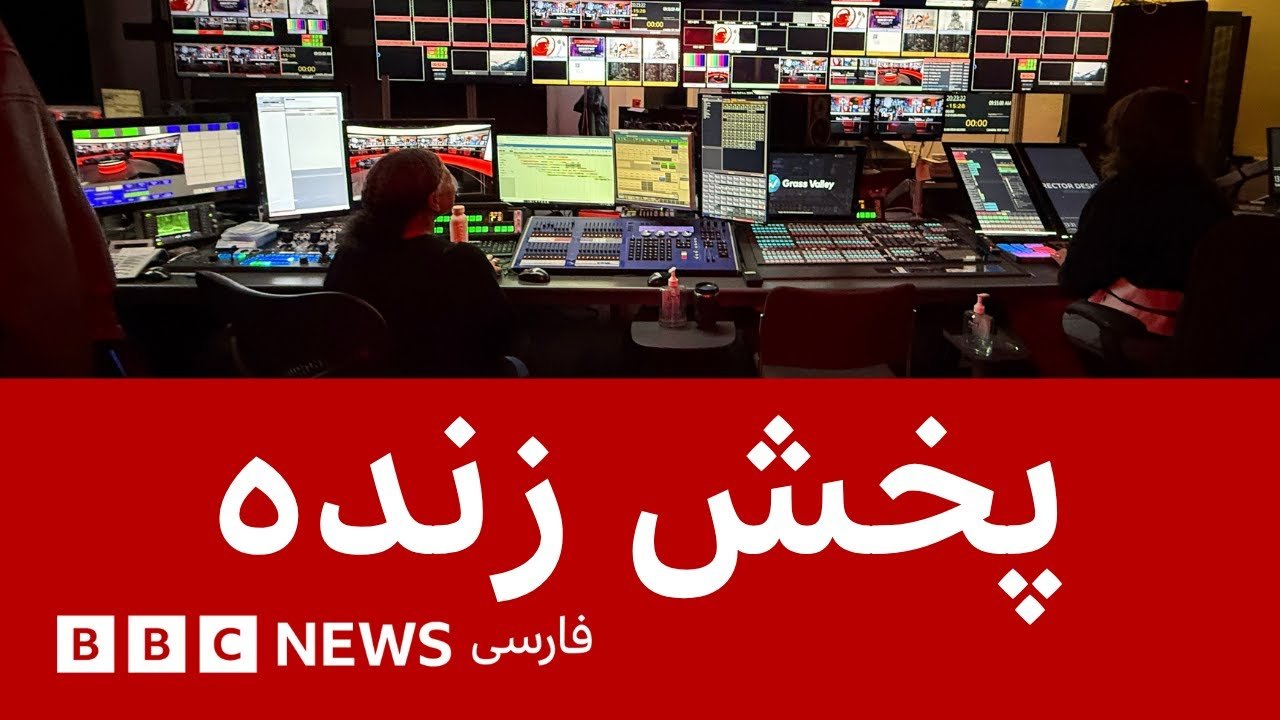News
BBC Persian: A Comprehensive Overview of the Persian-Language Branch of the BBC

BBC Persian, also known as BBC Persian Service, is the Persian-language division of the British Broadcasting Corporation (BBC). Established to provide reliable and impartial news to Persian-speaking audiences, it has become one of the most trusted international media outlets among people in Iran, Afghanistan, Tajikistan, and the Persian-speaking diaspora around the world.
The service has played a vital role in delivering news, cultural programming, and educational content while offering an alternative to local media landscapes, which are often influenced by political and governmental control. In this article, we will explore the history, structure, influence, challenges, and impact of BBC Persian, providing an informative deep dive into why it remains an essential news source.
History of BBC Persian
The roots of BBC Persian date back to December 1940, during World War II, when the service was first launched as part of the BBC World Service. Its initial mission was to provide news and counter Axis propaganda in the Middle East.
Over the decades, BBC Persian evolved to reflect global political changes, the Cold War dynamics, and the rise of satellite television. In 2009, the BBC expanded its presence with BBC Persian TV, a 24-hour satellite news channel that provided a stronger multimedia platform for Persian speakers.
This historical development demonstrates how the service has adapted from radio broadcasting to digital and television platforms, ensuring relevance across different generations of audiences.
The Role of BBC Persian in Media Landscape
In countries like Iran, where state media dominates, BBC Persian provides an independent perspective. Many citizens rely on it to receive unbiased reporting on local and international events.
Unlike domestic outlets, BBC Persian maintains editorial independence under the BBC Charter and guidelines. Its journalism often covers sensitive topics such as:
- Human rights issues
- Political developments
- Cultural debates
- Regional conflicts
- Global economic news
By offering diverse viewpoints, the service contributes to the development of a more informed society, giving audiences the tools to make decisions beyond state narratives.
Platforms and Accessibility
BBC Persian has expanded far beyond traditional radio. Today, audiences can access content through:
- Television – BBC Persian TV, a 24-hour satellite news channel launched in 2009.
- Radio – Though less dominant now, radio remains crucial in regions with limited internet access.
- Website – The BBC Persian website provides news articles, analysis, and multimedia.
- Social Media – Platforms such as Instagram, YouTube, Twitter (X), and Facebook allow wider engagement with younger audiences.
- Mobile Applications – The BBC Persian app delivers live updates, breaking news, and streaming services.
This multi-platform presence ensures that BBC Persian can reach users regardless of their location or technological limitations.
Coverage Areas and Editorial Approach
The editorial approach of BBC Persian is rooted in the principles of impartiality, accuracy, and fairness. It covers a broad range of subjects:
- Politics and Governance – Both domestic politics in Iran and global events impacting Persian-speaking regions.
- Economy and Trade – Inflation, sanctions, and international business developments that affect everyday life.
- Society and Culture – Issues such as gender equality, education, traditions, and artistic movements.
- Technology and Science – Innovations, health, and environmental challenges.
- Regional Affairs – Updates from Afghanistan, Tajikistan, and the broader Middle East.
Through this diversity, the service appeals to both highly educated professionals and everyday citizens seeking clarity in complex issues.
The Influence of BBC Persian in Iran

Among Persian-speaking populations, Iran remains the largest and most significant audience base. According to various media surveys, millions of Iranians tune in to BBC Persian TV or consume its digital content daily.
BBC Persian has become especially influential during critical events, such as:
- 2009 Iranian presidential elections – Coverage of protests and political unrest.
- Nuclear negotiations – Analysis of Iran’s position and international responses.
- Human rights movements – Reporting on protests, women’s rights, and censorship.
Its credibility and reach make BBC Persian a unique platform where sensitive issues are discussed openly, something often absent from state-controlled networks.
Challenges Faced by BBC Persian
Despite its success, BBC Persian faces significant challenges:
Government Restrictions
Iranian authorities have often accused BBC Persian of promoting foreign agendas. Journalists working for the service or their families have been subject to harassment, intimidation, and restrictions.
Cyber Attacks and Censorship
The Iranian government has blocked access to BBC Persian’s website multiple times. Many users rely on VPNs or proxy services to bypass digital censorship and access independent news.
Competition with Other Media
In addition to domestic media, BBC Persian faces competition from other international outlets such as VOA Persian (Voice of America) and Iran International. This competition requires the BBC to continually innovate and maintain journalistic integrity.
The Role of BBC Persian in Cultural Exchange
BBC Persian is not only about politics and news; it also plays a key role in cultural exchange. Programs highlight Persian literature, poetry, cinema, and music, while also introducing international art and culture.
This cultural bridge helps Persian-speaking audiences connect with global movements while preserving their own heritage. Programs on history, health, and education further enrich the service’s value beyond traditional journalism.
BBC Persian in the Digital Era
The shift to digital platforms has transformed the way BBC Persian operates. Today, the majority of younger audiences consume news through mobile phones and social media.
BBC Persian has successfully adapted by:
- Producing short-form video content optimized for Instagram and TikTok.
- Hosting interactive debates on YouTube.
- Using Twitter Spaces and podcasts for live discussions.
- Offering real-time news updates through push notifications.
This digital-first approach ensures that BBC Persian stays relevant in a rapidly changing media landscape.
Global Recognition and Awards
BBC Persian, as part of the BBC World Service, has received international recognition for its journalism. Its reporters and programs have won awards for investigative reporting, human rights coverage, and digital innovation.
This recognition highlights the service’s commitment to professional standards, even under challenging political conditions.
Future of BBC Persian
Looking ahead, BBC Persian faces both opportunities and obstacles. The continued demand for independent journalism in Persian-speaking countries ensures its relevance. However, increasing government restrictions, competition from new media outlets, and technological challenges require adaptation.
The future strategy will likely focus on:
- Strengthening digital engagement with younger audiences.
- Enhancing security measures for journalists and content distribution.
- Expanding global reach among the Persian-speaking diaspora.
By embracing innovation while maintaining editorial integrity, BBC Persian is expected to remain a cornerstone of independent media.
Conclusion
BBC Persian has grown from a wartime radio broadcast in 1940 to a modern, multi-platform media powerhouse. It serves as a trusted source of independent news, cultural exchange, and global perspectives for millions of Persian speakers worldwide.
More details : Jules Torres, le journaliste politique qui façonne l’analyse au Journal du Dimanche

-

 Entertainment4 weeks ago
Entertainment4 weeks agoBison Kaalamaadan Review: When a Sports Film Becomes a Portrait of Caste, Rage, and Survival
-

 Fashion2 months ago
Fashion2 months agoForbidden Pants: How Clothing Restrictions Shape Culture, Identity, and Society
-

 Lifestyle1 month ago
Lifestyle1 month agoQuiet Luxury: How Thoughtful Storage Elements Elevate the Status of a Wardrobe
-

 Celebrity2 months ago
Celebrity2 months agoStorm Reid’s Parents: All About Robyn Reid and Rodney Reid






